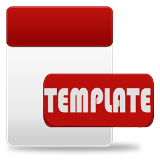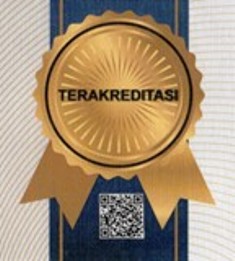Development of E-Modules in Geography Subject to Improve Self Regulation, Motivation and Learning Outcomes
DOI:
https://doi.org/10.24036/sjdgge.v6i1.404Keywords:
e-modules, feasibility, self-regulation, motivation, learning outcomesAbstract
Mastery of learning technology by teachers is highly necessary for the digital era. For example, the ability of teachers to package learning materials using various software in various formats. One form of presenting learning materials with technology is an e-module. E-modules serve as the main teaching material in online learning and can also be used in face-to-face learning. The purpose of this study was to develop an -module, evaluate its feasibility and analyze its effect on motivation, self-regulation and learning outcomes in online learning. This research used the ADDIE model and then continued with a quasi-experimental research design with two pretest-posttest groups. The subjects of this study were students who participated in the Geography Learning Planning course. Class A (control group) and Class C (experimental group) students each consisted of 20 people. Data was collected through questionnaires and tests. The data analysis used is descriptive statistics and inferential statistics. The statistical tests carried out were t-test and ANCOVA by using SPSS version 24 software. The results showed that the e-module developed was very feasible and the application of the e-module in online learning was significantly increased self-regulation, motivation, and learning outcomes.
Downloads
References
[2] Berutu, N., Delita, F., Astuti, A.J.D., Novira, N & Wirda, M.A. The Strategy To Strengthen Information Literacy Based On Library and Digital Resources. 2019.
[3] Herawati, N. T. The Implementation of Self Regulated Learning Model Using ICT Media Toward the Students Achievement in Introduction to Accounting Course. Journal of
Accounting and Business Education, 2(1), 2017. pp.144-157.
[4] Kismiati, D. A. Pengembangan E-Modul Pengayaan Isolasi dan Karakterisasi Bakteri sebagai Sumber Belajar Biologi untuk Meningkatkan Kemandirian dan Hasil Belajar Kognitif Siswa SMA Kelas X di SMAN 1 Jetis Bantul. (Thesis unpublished). Universitas Negeri Yogyakarta, Yogyakarta. 2018.
[5] Kementerian Pendidikan dan Kebudayaan.. Panduan Praktis Penyusunan E-Modul Pembelajaran. Jakarta. 2017
[6] Asrial, Syahrial, Maison, Kurniawan, D. A., & Piyana, S. O. Ethnoconstructivism E-Module to Improve Perception, Interest, and Motivation of Students in Class V Elementary School. JPI (Jurnal Pendidikan Indonesia), 9(1), 2020. pp.30–41.
[7] Syahroni, M. W., Dewi, N. R., & Kasmui. The Effect of Using Digimon (Science Digital Module) with Scientific Approach at the Visualization of Students’ Independence and Learning Results. Jurnal Pendidikan IPA Indonesia, 5(1), 2016. pp.116–122.
[8] Aprilia, I., & Suryadarma, I. G. P. E-Module of Mangrove Ecosystem (EMME): Development, Validation, and Effectiveness in Improving Students’ Self-Regulated. Biosfer : Jurnal Pendidikan, 13(1), 2020. pp. 114–129.
[9] Jeske, D., Backhaus, J., & Roßnagel, C. S. Self-regulation During E-Learning: Using Behavioural Evidence from Navigation Log Files. Journal of Computer Assisted Learning, 30(3), 2014. pp. 272-284.
[10] Delita, F., Arif, M., Rosni., Sitompul, M & Rohani. Improving The Quality of Learning Through Assignment System. Journal of Physics: Conference Series. 2019.
[11] Pintrich, P. R. The role of goal orientation in self-regulated learning. In M. Boekaerts, P. R. Pintrich, and M. Zeidner (Eds.), Handbook of self-regulation, San Diego, CA: Academic, 2005. pp. 451-502.
[12] Hill, M., Sharma, M. D., & Johnston, H. How Online Learning Modules Can Improve the Representational Fluency and Conceptual Understanding of University Physics Students. European Journal Of Physics, 36, 2015. pp. 1–20.
[13] Nisa, W. L., Ismet & Andriani, N. Development of E-Modules Based on Multi-representations in Solid-State Physics Introductory Subject. Berkala Ilmiah
Pendidikan Fisika, 8(2), 2020. pp. 73-81.
[14] Noroozi, O., & Mulder, M. Design and Evaluation of a Digital Module with Guided Peer Feedback for Student Learning Biotechnology and Molecular LifeSciences, Attitudinal Change, and Satisfaction. Biochemistry and Molecular Biology Education, 45(1), 2017. pp.31–39.
[15] Boyd, L. Using Technology-Enabled Learning Networks to Drive Module Improvements in the UK OpenUniversity. Journal of Interactive Media in Education, (1) 2019, 1–7.
[16] Tamrongkunanan, T., & Tanitteerapan, T. Development of Required Knowledge and Skills among Students through Applied Learning Modules. International Journal of Instruction, 13(4), 2020. pp. 695-714.
[17] Zimmerman, B. J. Attaining Self-Regulation. Handbook of Self-Regulation. In
Educational Psychologist. 2000.
[18] Saks, K., & Leijen, Ä.. Distinguishing Self-Directed and Self-Regulated Learning and Measuring Them in the Elearning Context. Procedia-Social and Behavioral Sciences, 112, 2014. pp.190-198.
[19] Müller, N., & Faltin, N. IT-Support for Self-Regulated Learning and Reflection on the
Learning Process. ACM International Conference Proceeding Series. 2014.
[20] Logan, R. M., Johnson, C. E., & Worsham, J. W. Development of an E-learning Module to Facilitate Student Learning and Outcomes. Teaching and Learning in Nursing, 16(2), 2021. pp. 139–142.
[21] Sanghi, S. The handbook of competency mapping. SAGE Publication. 2007.












